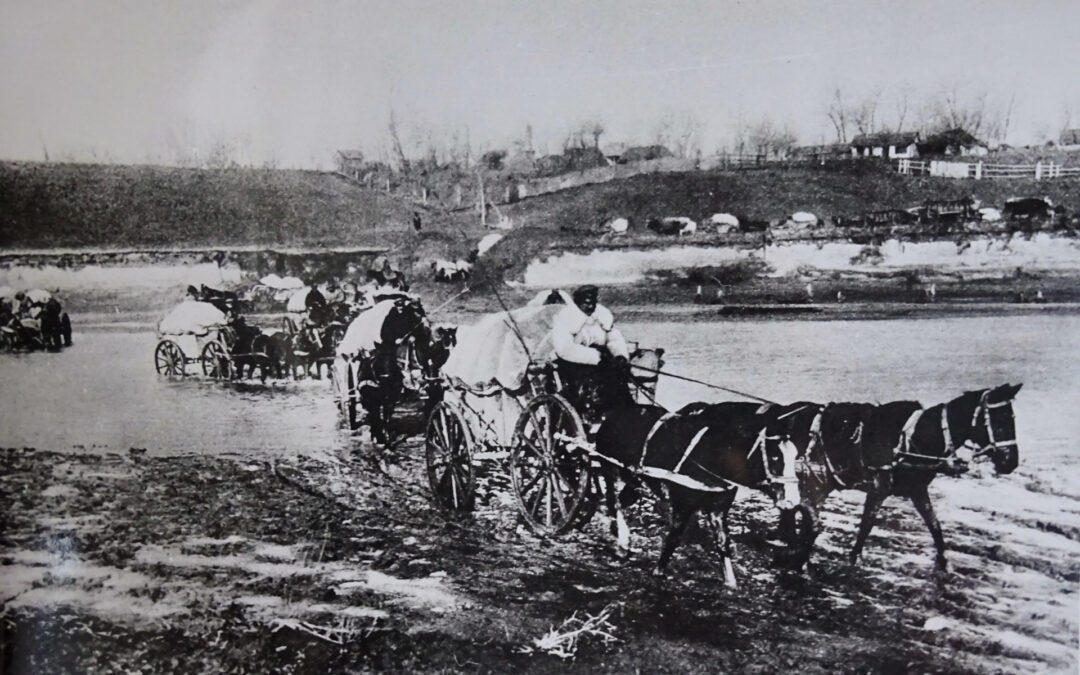Alexandru Vasiliu Tătăruși was a folklore collector, who dedicated his entire life to rural education. Between July 11, 1916 and January 25, 1918, A. Vasiliu fought on the frontlines of the First World War. He was wounded and was rewarded for his bravery with two decorations, “Valour and faith” and “St. George’s Cross”. He was demobilized with the rank of sergeant, and wrote about the tragedies he witnessed many years later, during the interwar period, but his memoirs were only published in 1979.
“Tulgheş, Monday, October 3, 1916
I did nothing all week, from September 12 to September 18. On Thursday, September 22, I received an order from Captain Zăhărescu, who was at the end of the village of Neagra Şarului, near the place called Gura Haitei, to go to the battalion’s chancellery to work there together with him. On Friday morning, September 23, in a light rain, I got in a carriage transporting the rations for 3rd company and went to do my duty. From Coverca to Neagra Şarului, on a small strip of land, we treaded carefully, because enemy cannons were hitting our convoys, which brought food to soldiers on the frontlines. Then, as we exited the forest, towards Coverca, the road was damaged by several shells. Many houses were burnt, turned in large piles of charcoal. I recognised the burnt house of Gavril Petrovici, the house of priest Gheorghițanu, the church in Panaci. Near Neagra Şarului I saw other burnt houses: that of Ion Paţa, the school, some hovels, all set alight by artillery shells, as if by the enemy’s hand.
I arrived at the headquarters of the battalion, in the house of Ilie Ortuanu, sitting on the west edge, near the fish creek. When I entered the house, I was surrounded by the captain and sub-lieutenant Ionescu Teodor and they began to tell me about what they had to go through from September 1 and the heavy battles they were involved in. In the evening, news was received that the guard line would be taken over by a battalion of the 69th, and our battalion was to leave to Borsec in Transylvania, where it was decided to stay for a while to rest. At midnight the officers of 1st, 3rd, and 4th companies gathered and at two o’clock in the morning we went on our way. We saw how the enemy next to Dorna and the Șarul Dornei lit up the night with spotlights.
We arrived in Coverca by daylight and stayed in the back of a hill, on the Mihăileț creek, in order not to be seen by the enemy. There, at about half past eleven, there was a great misfortune. One soldier was cleaning his gun, without realising it was loaded. The weapon discharged and killed a soldier and gravely injured another in front of him, with the latter apparently dying in the evening, or the next day. On Saturday, after dusk, I took the road to Păltiniş. I forgot to point out that, on Saturday morning, after I got there, near Mihăileț creek, the Germans or Hungarians opened fire on the village of Neagra Şarului. Cannons and guns roared terribly, and after a while I saw houses burning. The church in Neagra Şarului was a little damaged, and you could see the blackness of smoke on the bell tower. You could see that they wanted to burn it down, but it didn’t catch fire”.
Translated by Laurențiu Dumitru Dologa

